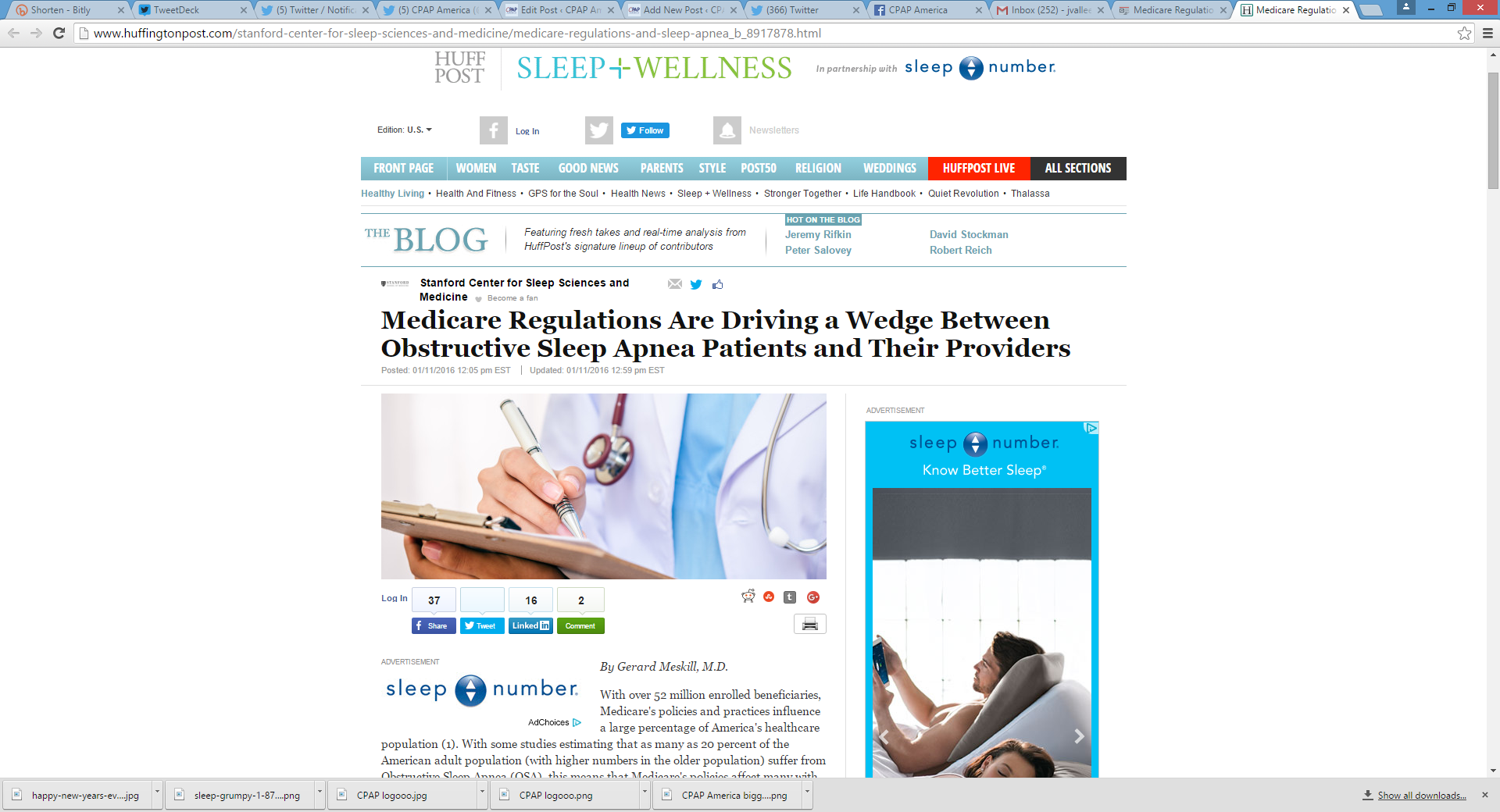
Medicare Policies vs Sleep Apnea Patients, Providers
Medicare Regulations causing a rift between Sleep Apnea patients & providers
With over 52 million enrolled beneficiaries, Medicare’s policies and practices influence a large percentage of America’s healthcare population (1). With some studies estimating that as many as 20 percent of the American adult population (with higher numbers in the older population) suffer from Obstructive Sleep Apnea (OSA), this means that Medicare’s policies affect many with this condition (2). As of July 1, 2013, Medicare has the strictest policies of any insurer on the administration and maintenance of continuous positive airway pressure (CPAP) devices and supplies for the treatment of OSA. On the surface, the rationale for some of these policies may seem logical. However, the unbending enforcement of these Medicare rules regarding durable medical equipment (DME) has led to unintended consequences, including the repossession of CPAP machines from patients, extended delays in administration of equipment related to OSA, denial of continuation of treatment for patients who have been using CPAP for years, and damaged relationships between patients and healthcare providers.
In order to understand the problem, we must first discuss what these Medicare policies are, and the rationale behind them. In order for a patient to qualify for treatment of OSA, the patient must have a face-to-face encounter with a physician who documents a concern for OSA and refers the patient for a sleep study. That sleep study must demonstrate the presence of OSA based upon Medicare’s definition for the condition, which differs from the current American Academy of Sleep Medicine (AASM) definition (more on that later). Then if the patient gets a CPAP device, the device’s data must be tracked to show compliance. If compliance is not demonstrated within 90 days, then the device must be returned, and if the patient wants to try again, the process must be repeated.
The rationale behind this policy lies in an ugly fact: almost 50 percent of patients who are prescribed a CPAP device will quit within one year (3, 4). The majority of those who quit will do so quickly.
To read the rest of this sleeping related article, click here:
You can buy CPAP Machines, tubing and all of your CPAP supplies at CPAP America, 707 Mantua Pike, West Deptford, NJ 08096. Feel free to contact us at 1-800-569-0167.
You can also reach us via email here.

